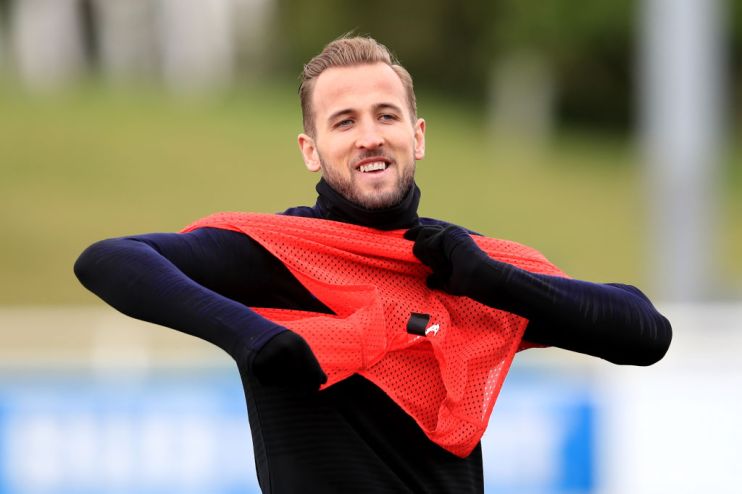England looking to build on club success at last

While Premier League clubs running amok in Europe this season may have lifted spirits among his squad, it has caused a headache for England manager Gareth Southgate.
The problem is largely logistical, with the late arrival of Liverpool and Tottenham players to the training camp this week following their Champions League final exertions disrupting preparations for Thursday’s Nations League semi-final against Holland in Guimaraes, Portugal.
But Southgate has another, more nebulous issue to grapple with. The continental success of Liverpool, Spurs, Manchester City and Chelsea is likely to turn up the heat again on the national team to finally deliver a trophy.
Raised expectations threaten to reopen old wounds. The crime pinned on the so-called Golden Generation of the previous decade was that they never fulfilled their potential.
That England team of Wayne Rooney, Michael Owen, Steven Gerrard, Frank Lampard, John Terry and Rio Ferdinand was stacked with players who won Champions Leagues and multiple Premier League titles.
Yet instead of converting that into long-awaited triumphs at World Cups or European Championships, their legacy was a string of quarter final exits and a creeping disillusionment with the national team.
Reciprocal relationship
History is strewn with examples of other countries finding a reciprocal relationship between their clubs’ success in European competition and international glory.
Barcelona’s hat-trick of European Cups in 2006, 2009 and 2011 provided a springboard for Spain to claim an unprecedented three consecutive major titles at Euro 2008, the 2010 World Cup and Euro 2012. Spanish clubs, Real Madrid in particular, then rode that wave to monopolise the Champions League from 2014 to 2018.
West Germany’s Euro 1972 and 1974 World Cup wins, plus a runner-up spot at Euro 1976, overlapped with Bayern Munich’s three European Cups in a row from 1974.
Similarly, Italy parlayed Inter and AC Milan’s four European Cups in seven years between 1963 and 1969 into winning the 1968 European Championship and reaching the 1970 World Cup final.
Following four Dutch winners of the European Cup from 1970-73, Holland reached successive World Cup finals in 1974 and 1978. When they did win a title at last, at Euro 1988, it came just weeks after PSV Eindhoven claimed club football’s equivalent.
Equally, it was no coincidence that Portugal reached their first major final, at Euro 2004, in the year that Porto won the Champions League.
Anomaly
It is not as straightforward as one thing following the next, however. Spain remained in the international doldrums despite Real Madrid winning three Champions Leagues between 1998 and 2002, a spell in which Valencia also made the final twice.
The rise of Serie A in the 1990s saw Italian clubs reach nine of 10 Champions League finals from 1989 to 1998. While that helped the Azzurri finish runner-up at the 1994 World Cup and Euro 2000, they did not add a trophy until the 2006 World Cup, which was sandwiched between two more European Cups for AC Milan.
England aside, France are the biggest anomaly. Twice in living memory Les Bleus have reached back-to-back major finals: when they won the 1998 World Cup and Euro 2000, and then when they followed asecond place at Euro 2016 by winning last year’s World Cup.
Yet French clubs have not been in touching distance of a European Cup since 1993, when Marseille won it two years after reaching the final. At that time the national team was on its knees, failing to make two World Cups in a row.
Once upon a time, England’s success and that of its clubs seemed to be intertwined, with the 1966 World Cup heralding good results in Europe, notably Manchester United’s 1968 European Cup win.
Since then, however, it has been a different story. English clubs’ domination of Europe during the late 1970s and early ‘80s was absolute. With Liverpool at the fore, they won seven European Cups in eight years from 1977 to 1984. But the national team did next to nothing.
And when Premier League teams began dominating the Champions League, providing three different winners and five runners-up in eight years from 2005 to 2012, the Golden Generation found international medals far harder to come by.
Pressure
A recurring explanation for England’s failings has been the pressure. Rooney, Gerrard, Lampard and Ferdinand have all spoken about the burden they felt when representing their country.
The nadir of Roy Hodgson’s spell in charge and Sam Allardyce’s aborted reign set the bar low for Southgate’s men at the 2018 World Cup. Reaching the semi-finals, however, and now being within 180 minutes of lifting a first meaningful piece of silverware for 53 years has begun to nudge it up a few notches.
Southgate’s nurturing of a club feel to the squad appears to have made the England dressing room a happier place; recent wins over Spain and Croatia were testament to that.
Keeping the pressure in check – and reversing decades of disconnect between club and country achievements – will be key if this generation is to prove more golden than the last.
